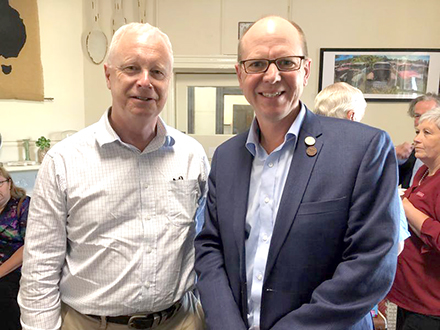Australia needs a national approach to natural disasters and the Federal Government must play a greater role than it currently does, according to the Royal Commission into National Natural Disaster Arrangements. Source: Timberbiz
In its report published today, the Commission makes 80 recommendations to improve Australia’s national natural disaster arrangements.
Commission Chairman Air Chief Marshal Mark Binskin said there was an important role for all levels of government in relation to managing natural disasters.
“We heard harrowing personal accounts of devastation and loss. Over 24 million hectares were burnt. Many Australians were impacted, directly or indirectly, by the fires,” the commission’s chair Air Chief Marshal Mark Binskin said in the report.
“Tragically, 33 people died and extensive smoke coverage across much of eastern Australia may have caused many more deaths.
“Over 3000 homes were destroyed. Estimates of the national financial impacts are over $10 billion.”
The fires between July 2019 and February 2020 killed 33 residents and nine firefighters and destroyed 2439 homes.
The commission published interim observations in August that highlighted the need for more research into hazard reduction burns while warning of the increased risk of more frequent and intense natural disasters over coming decades.
“While state and territory governments have primary responsibility, and accountability, for emergency management, we have concluded that Australia needs a national approach to natural disasters. This calls for the Australian Government to play a greater role than it currently does,” he said.
“Effective national coordination will be a critical capability in managing natural disasters on a national scale or with national consequences. Arrangements need to be clear, robust and accountable.’’
Over 35 days of hearings, the Chair and fellow Commissioners, Dr Annabelle Bennett AC SC and Professor Andrew Macintosh, heard from more than 270 witnesses, including:
- individuals directly affected by natural disasters
- current and former representatives of state and territory fire and emergency
- management agencies
- experts in a broad range of fields – for example, climate science, fire
- prediction, and the health impacts of bushfire smoke
- representatives of charities, industry peak bodies, and consumer groups, and
- senior officials from the Australian, state, territory and local governments.
“We have taken a principled approach that entrusts the implementation of our recommendations to the respective stakeholders. This approach ensures those who are best placed to effect improvements can do so,’’ the Commission chairman said.
“There are lessons for all of us arising from our inquiry. Governments, essential services providers, insurers, charities, communities and individuals should consider what steps they must take across all phases of natural disasters to improve national natural disaster arrangements.’’






